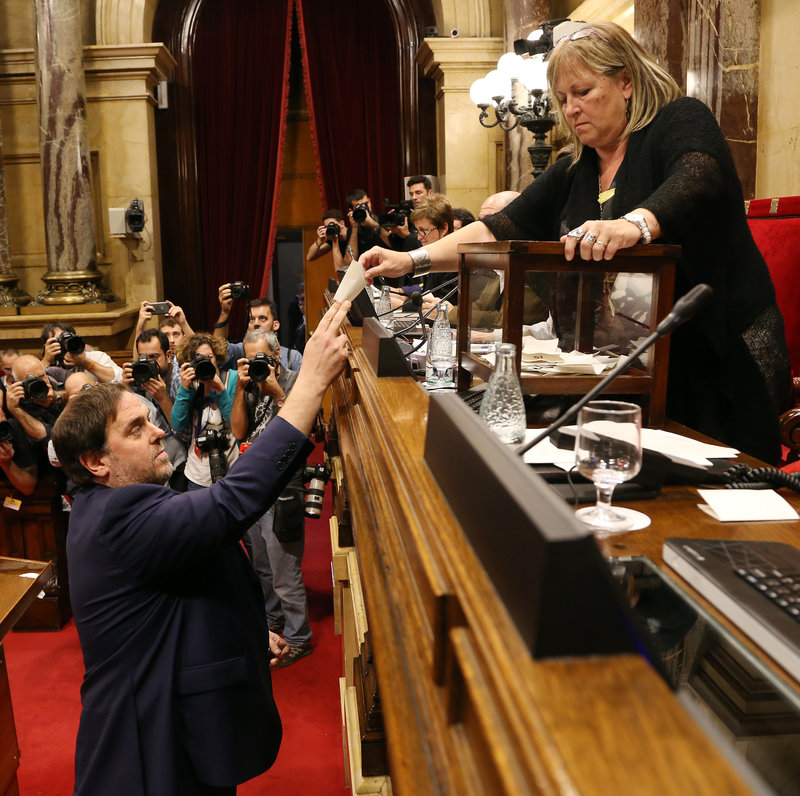Solidarity, but with whom?
More than three years ago the Parliament of Catalonia proclaimed independence. The Catalan Republic embodies values valid for universal progress. And it was another attempt to resolve the national conflict of Catalonia with Spain by democratic and peaceful means, in accordance with 21st century international law. And it is not unusual for processes of national liberation to last some years.
The main reason that Catalonia, despite being a nation, continues to have no state of its own, is the repression of the Spanish state. Indeed, Spain did not recognise the result of the referendum of October 1, 2017 in favour of the independence of Catalonia, and triggered a repression that has led to political prisoners and exiles. The difference in behaviour of the Spanish judiciary and that of many European countries for the same facts is shocking. So, while the Catalan political exiles who won seats in the European Parliament have taken their seats, the same has been denied to another in a Spanish prison.
On the other hand, Spain did not accept that the winner of the elections of December 21, 2017, or other candidates who were not to its liking, could be appointed president of Catalonia, due to various legal proceedings. Finally, the president who was appointed in May 2018 was dismissed in September 2020 by the Spanish judiciary for having hung a banner calling for the release of political prisoners, which has led to new elections. All this shows the colonial treatment by Spanish imperialism.
The neo-fascist drift in which Spain is engaged and of which the emergence of the far-right Vox party is nothing more than the tip of the iceberg, means that the repression against the independence movement is expanding. At the end of October, a new political police-judicial operation took place with unfounded accusations. Thus, it was said that the presence of 10,000 Russian soldiers in Catalonia had been offered when independence was proclaimed. The purpose of this ridiculous accusation is to pit European public opinion against the independence of Catalonia, as it has no basis. In fact, Russia’s alleged support for Catalonia’s independence is nothing new. But as early as April 2018, a committee of the British Parliament found out that it was fake news.
To deal with the European economic crisis, the EU has approved a significant volume of funds to distribute among the member states. Solidarity is important. It cannot be said that Catalonia is unsupportive, among other reasons because of its net positive contribution to the EU. But Catalonia can no longer bear the fiscal deficit of 8% of its GDP with Spain, a plunder. And do not Catalans have the same rights as other similar peoples who have achieved independence since the 1990s in Europe?
The Catalan case is not unique and other stateless nations are also entitled to it. And possibly the European Union is not interested in a proliferation of new states. However, in no case would they be 95, as a politician said. What is at stake is whether or not the European Union is faithful to its democratic founding principles. Some conditions of respect for the rule of law have been established for the distribution of European anti-crisis funds. Moreover, if once again, the European Union closed its eyes to the massive human rights violations in Catalonia, it would be giving its solidarity to an oppressive state. And this is not sustainable and would only lead to the disintegration of the European Union itself.

